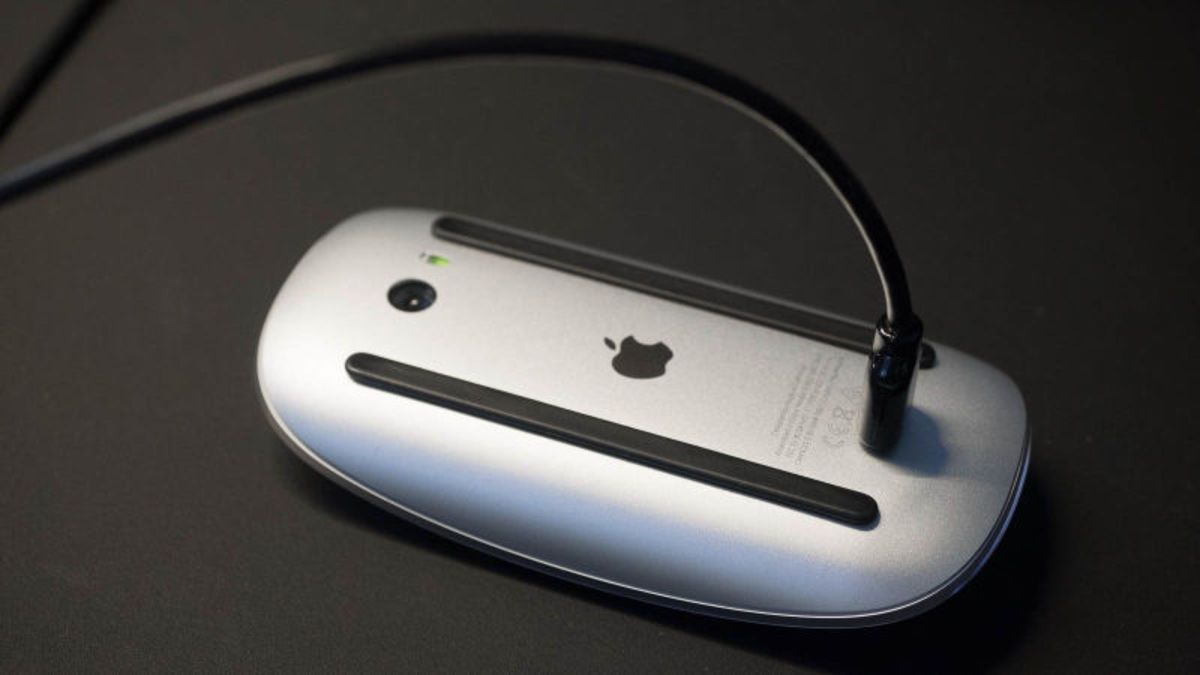Apple’s Exceptional Product Messaging
I tweeted out a link to Joshua Vergara’s well-made review of the new Samsung Galaxy Book Flex, because one bit stood out to me. He says:
There’s wireless power share in the touch pad. Talk about being nimble, if you’re watching something on the screen[...] and you’re not really doing any inputs on there, you can just turn on wireless power share and have any of your other wireless charging capable devices sitting on there so you can top it up while you’re doing anything else on the display.
It’s this level of thought that Samsung put into the laptop that is honestly pretty refreshing.
The whole time he was showing off this feature, all I could think of in my head was this:

Yes, you can wirelessly charge your headphones or phone on your laptop, which is cool, but the cost is not being able to use the trackpad. And I’m not sure where your fingers are when you’re typing, but this would block me from using the keyboard as well. It’s also limited to working on a flat, stable surface, so watching TV in bed, on the couch, or on a plane are all out. Not to mention that you could bring a cable in your laptop bag and charge up way faster, way more reliably, and not force yourself to stop using your laptop at the same time. I would bet good money most users try this out once, think “that’s cool,” and then never use it again.
I bring this up not because I’m super interested in this laptop, I’m not, I just watched it because I enjoy Joshua’s product videos. No, what I think is worth thinking about is how we review products and features from different companies.
I am far from someone who thinks the tech media is biased against Apple, but I do think that we talk about Apple stuff, and sometimes Google and Microsoft stuff, differently than other companies’ products. Those criticisms that immediately jumped to mind in this product were completely glossed over. It was basically, “this is new, this is novel, and there’s some good you could get from it, so it’s good.” There’s no way that’s where this would end if we were talking about the same feature in MacBooks. I mean, look at the thousands of words and hours of video spilled on the new Magic Keyboard for iPad. Seriously, it’s just an accessory, but we treat it to lavish video productions and nitpick every little implementation detail. Don’t get me wrong, I enjoy this world, but it does illustrate how we talk about things between different companies.
A reason for this is also because of how focused someone like Apple is with their product lines. Apple is very good at messaging their updates, so without looking at a press release, you can probably tell me right now what new features the 2020 iPad Pro had over the 2018 one. You can tell me what kind of switches are in each MacBook Pro released in the past decade. You can tell me what model iPhone dropped the home button. Apple iterates on their products in a clear, and focused way that makes it so you can easily tell what’s new and you can easily draw a straight line from one product release to the next. Where does this Samsung laptop compare with the last model? Oh, the name is different and it’s technically not a direct follow up to something else? It’s adding some things and removing others? It’s priced the same as another laptop that has some trade offs but is better in other ways? It’s just more complicated.
Your takeaway here should not be that the tech press as a whole is out to get Apple, although I know some of you already think that. I hope the takeaway is a better understanding of this difference in how we talk about products from different companies. Know that it’s a thing and consider it in your consumption of product criticism. Also, understand that the increased scrutiny that Apple products tend to get is specifically caused by their excellent product focus and linear iterations of product lines. We understand their products as more than just spec sheets, so we talk about them like they’re more than that. Apple’s success, both financially and product-wise, is what earns them this level of scrutiny.